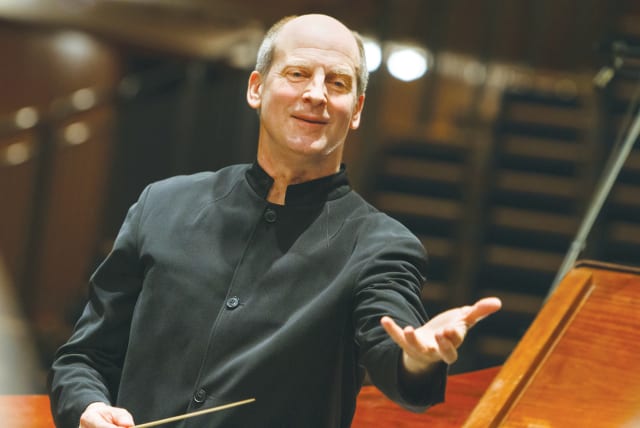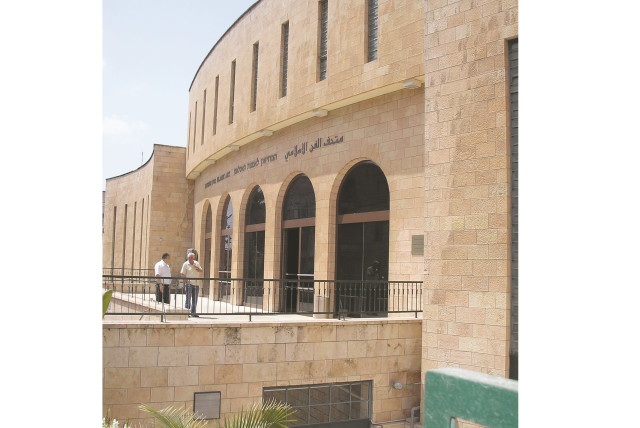Bringing Israelite coals back home through Mawal Baladi Festival

The Mawal Baladi Festival was intially put on hold for a while due to the war, but a decision was made to go ahead with the four-day event, which will now take place December 26-29.
As the violence drags on in the South, and residents of the Gaza border communities and the North continue to endure a refugee existence, albeit in relative physical luxury, it is comforting to know that at the very least some of our spiritual needs are being addressed. Cultural and artistic endeavors are on the up, particularly in Jerusalem.
Like so many cultural events, the Museum for Islamic Art’s annual musical offering, the Mawal Baladi Festival, was put on hold for a while.
Eventually, a decision was made to go ahead with the four-day event which now will take place December 26-29.
Artistic director and internationally renowned violinist-oud player Yair Dalal has crafted an intriguingly varied and rich program with concerts scheduled for the Jerusalem Theatre, Zappa Jerusalem, and the host venue. The genre spread incorporates western classical and Arabic classical charts, Turkish music, chansons, Jewish Syrian liturgical songs, and heady Sufi airs, and a dose or two of energized rhythmic fare.
Plans for the four-day festival
The four-day bash opens with the dynamics throttle duly floored, at the Jerusalem Theatre, when Dalal joins forces with acclaimed Cologne-born violinist and conductor Werner Ehrhardt in an adventuresome odyssey through one of the great classical music oratories, Handel’s Israel in Egypt.
The unique project was conceived and written by Dalal, who incorporates Jewish music and Sufi poetry in the multi-layered mix.
This is a hefty artistic venture to take on, with Dalal’s longstanding 10-piece instrumentalist and vocalist Al Ol Ensemble joined on stage by the Jerusalem Symphony Orchestra and no less than three vocal groups – the Neveh Shir Choir, Shahar Choir, and the Jerusalem Oratorio Capellate Choir.

That seems like quite an undertaking, to which Ehrhardt says he is delighted to contribute. “This is outstanding. It’s a very special moment,” he enthuses. “We have this wonderful oratorio of George Frideric Handel who exactly took the words of the Bible to form this oratorio.” It was an inspiring springboard for the Mawal Baladi concert which Ehrhardt sees as a timely reminder of the common ground we all share in this part of the world.
“This gave us the opportunity to tell the story which is the same in our three religions, in the Old Testament. We have the same story and the same words, to tell it together.”
The idea of music serving as a bonding universal language is central to the concert’s philosophical underpinning. “On the one side there is the music of Handel, and on the other side there are the Muslim and Jewish songs,” Ehrhardt adds. “To perform this in a historical place like Jerusalem is, for me, incredible.”
Over the past four decades Ehrhardt has initiated and participated in hundreds of concerts across the globe, including western classical works and renditions of material infused with the colors, textures and aroma of all sorts of cultural climes. The latter has primarily featured the Orchestra D’arte del Mondo chamber music ensemble, which Ehrhardt founded in 2004 and performs a wide swathe of charts dating right up to the present day.
When Dalal posed the Israel in Egypt project to Ehrhardt the conductor was intrigued by the idea of marrying Handel’s music and the biblical text with sonic sensibilities from this part of the world. Still, there were some regional emotional logistics to be taken into account. “Yair came to Cologne and he told me the choirs were still working on the music, even though the war in Gaza had started,” Ehrhardt recalls. “Yair said he expects cultural life in Israel to start again.” And so it came to pass.
I asked Ehrhardt whether he thought German-born Handel may have balked at the Middle Eastern reading of his epic work. “Handel was a very open guy and he also had a good portion of pragmatism.” The baroque music icon was clearly willing and able to go with the flow. “We see he changed compositions, and sometimes put in arias from other composers, or from other pieces he wrote 20 years earlier. He could add a new singer then change the aria, and add new musicians.” Handel took an overarching view of how his creations were presented. “He was not only a fantastic composer and musician, he was also a businessman,” Ehrhardt explains. “He also thought about how people come into the concert and into the theater and so on. So I think he would have been very open to this idea [in Jerusalem].”
That willingness to stray from the prescribed straight and narrow would, Ehrhardt believes, have had Handel cheering on from the Jerusalem Theatre auditorium. Indeed, Handel and Bach have been likened by some to jazz musicians, due to their predilection for delineation flexing. “In Bach’s the rhythm plays a big role beneath the basso continuo,” he says referencing the bassline and chord progression harmonic structure of Baroque music.
Ehrhardt feels Handel would also have embraced Dalal’s ethnic arrangement of the biblical textual score. “You have something like in a band, like in a rock band or pop music. There you have the drum set and the bass. Everything is on that, and they give the music the push and the energy. I think you have the same thing in Baroque music, in Bach’s music and even in Handel’s music.”
It is heartening to learn of Ehrhardt’s broadminded approach to music as he embarks on a complex undertaking in the biblical Promised Land. “It is very challenging,” he notes with a laugh. “But I hope my experience will help in bringing it together. If we all come together, God willing, it will work.”
Above all, Ehrhardt is excited to have the opportunity to engage in cross-cultural enterprise, particularly in these trying times. “The idea of what we were doing together was very strong. It is hard to understand [the machinations behind the war in Gaza.]. We have the same roots – the Jews, Muslims and Christians. And they are still fighting about details, making war with each other. It is incredible. And it is not at all what God is meaning. Everyone says this is the meaning of God. He gave us this incredible world and it is our responsibility to handle it in a good way.”
Music, and the forthcoming Dalal-Ehrhardt synergy at the Mawal Baladi Festival, wouldn’t be a bad way to reset and go again, with the best of human and creative intent.
For tickets and more information: *6226 and www.bimot.co.il
